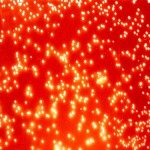Lien vers Pubmed [PMID] – 34672963
Lien DOI – S1473-3099(21)00267-X10.1016/S1473-3099(21)00267-X
Lancet Infect Dis 2021 Oct; ():
In April-May, 2013, France modified its pertussis vaccination schedule, which uses the acellular pertussis vaccine, from three primary doses at 2, 3, and 4 months of age and a first booster at 16-18 months of age (former schedule) to two primary doses at 2 and 4 months of age and a first booster at 11 months of age (new schedule). We aimed to assess the subsequent effect of the vaccine schedule change on pertussis epidemiology in France.In this modelling study, using data collected between Jan 1, 2012, and Dec 31, 2019, from French national surveillance sources, we analysed the PCR test results of nasopharyngeal swabs collected from symptomatic outpatients aged 2-20 years with suspected pertussis. We developed a negative binomial regression model for the number of confirmed pertussis cases by year and age to assess the relative risks of pertussis depending on vaccine schedule. The linear predictor included the year, the age group, the population size, and a proxy of waning immunity. We tested different models in which waning immunity could vary with vaccine schedule and type of primary vaccine. The models were fitted to the 2012-18 data via Bayesian Markov chain Monte Carlo sampling, and the 2019 data were left out for external model validation. We also compared the anti-pertussis toxin (PT) antibody concentrations in leftover sera from children not tested for pertussis or recent respiratory tract infection aged 2-5 years born before and after the vaccine schedule change.We collected data on 7493 confirmed cases of pertussis. The model that best fitted the 2012-18 epidemiological data supported a faster waning of immunity following vaccination with the new vaccine schedule. 3 years after vaccination, the risk of developing pertussis was 1·7 (95% CI 1·4-2·0) times higher for children vaccinated according to the new schedule than those vaccinated according to the former schedule. The model correctly predicted the age distribution of cases in 2019. Geometric mean concentrations (GMC) of anti-PT IgG were 50% lower in children aged 2 years vaccinated with the new schedule (GMC=5·85 IU/mL [95% CI 4·08-8·39]) than in children of the same age vaccinated with the former schedule (GMC=11·62 IU/mL [95% CI 9·05-14·92]; p=0·0016), and 43% lower in children aged 3 years vaccinated with the new schedule (GMC=3·88 IU/mL [95% CI 2·82-5·34]) than those with the former schedule (GMC=6·80 IU/mL [95% CI 4·77-9·70]; p=0·026).A shorter-lived protection induced by the new vaccine schedule recommended in France since 2013 is associated with an increase of pertussis cases in children aged 2-5 years. If similar findings are observed in other countries and clinical trials, these findings should be considered in future pertussis vaccination policies.INCEPTION, Labex-IBEID, Institut Pasteur, and Santé Publique France.

